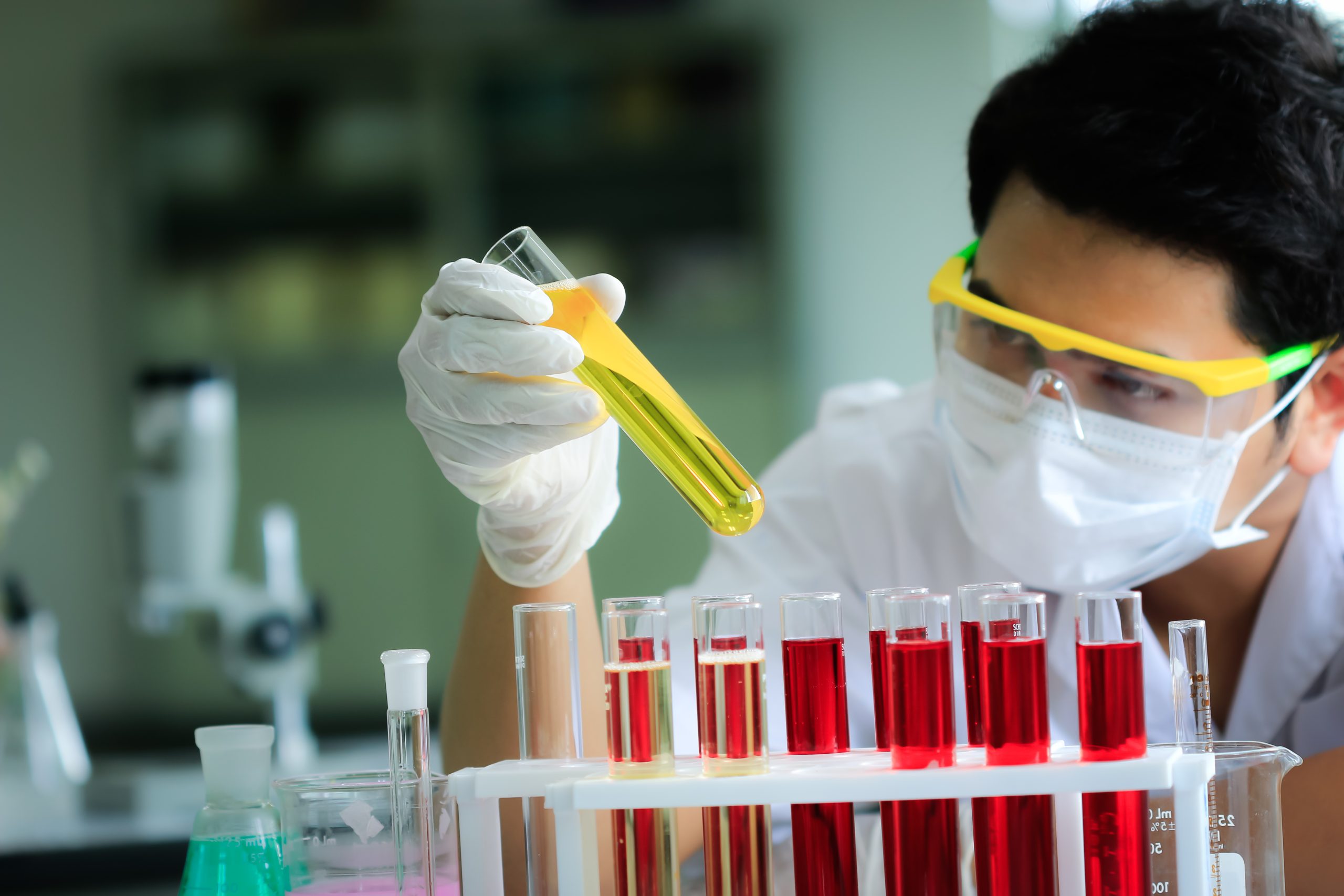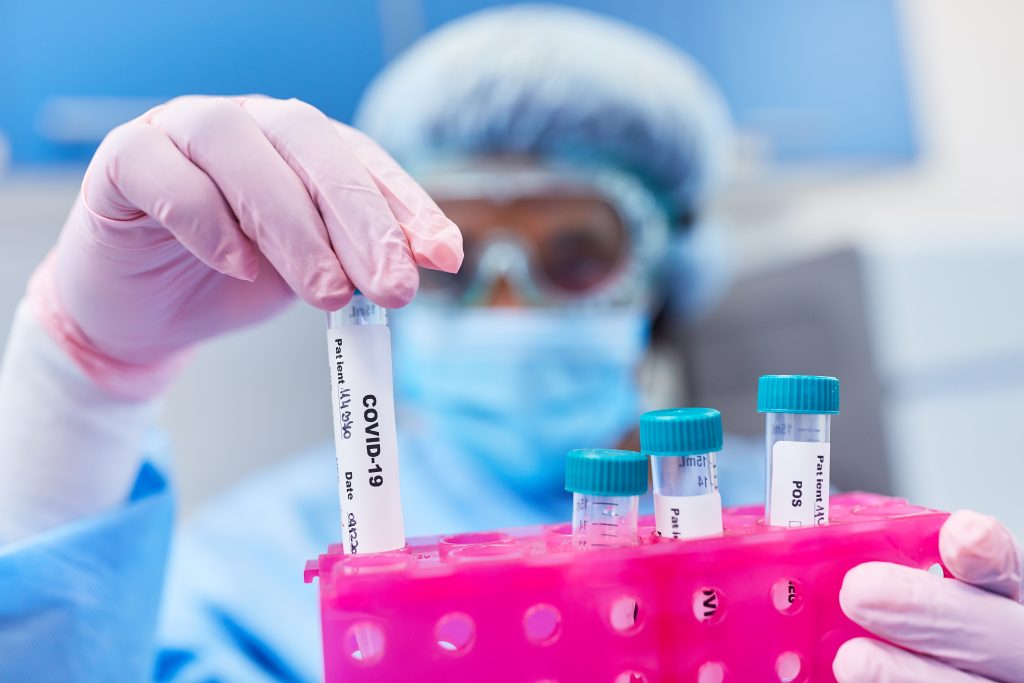 Biological technicians, sometimes called laboratory assistants, are responsible for ensuring that laboratories run smoothly. Under the supervision of medical scientists and microbiologists, biological techs conduct lab tests and experiments, analyze experimental data, and write reports that summarize their findings. The road to becoming a biological technician may not be as long as you think. While a bachelor’s degree is required for most jobs as a biological tech, some employers hire candidates with only associate’s degrees. If you’re considering a career as a biological technician, you’ll need to know what it takes. Below, we discuss how to become a biological technician, what degree you’ll need, how much money you’ll make, and more.
Biological technicians, sometimes called laboratory assistants, are responsible for ensuring that laboratories run smoothly. Under the supervision of medical scientists and microbiologists, biological techs conduct lab tests and experiments, analyze experimental data, and write reports that summarize their findings. The road to becoming a biological technician may not be as long as you think. While a bachelor’s degree is required for most jobs as a biological tech, some employers hire candidates with only associate’s degrees. If you’re considering a career as a biological technician, you’ll need to know what it takes. Below, we discuss how to become a biological technician, what degree you’ll need, how much money you’ll make, and more.
How Do You Become a Biological Technician?
To become a biological technician, you’ll need a bachelor’s degree in biology, biochemistry, or a closely related discipline. Your degree should also be awarded from an accredited college or university. While some positions are open to candidates with an associate’s degree, these are much less common. These candidates often have laboratory experience that makes up for the lack of education. For most positions, you’ll need a bachelor’s degree if you’re planning on becoming a biological technician. In addition to a four-year degree, you’ll also need laboratory experience to qualify for a biological technician position. Most science coursework in college includes a lab component, so you should gain adequate experience while earning your bachelor’s degree. Make sure you take many courses with lab components, which will equip you for the job.What Degree Does a Biological Technician Need?
To become a biological technician, one needs a biological technician degree, but you likely won’t find a major in biological technology at a college or university. However, you will find majors that relate to your chosen career. Biological techs need a bachelor’s degree in biology or a related discipline. Some of the best degrees for biological technicians include:- Biology
- Biochemistry
- Biophysics
- Ecology
- Microbiology
- Physiology
Education for Biological Technicians
As you explore how to become a biological technician, it’s important that you understand what type of education for biological technicians is needed to land a job. As indicated above, biological techs need a bachelor’s degree in biology or a subfield of the discipline. In addition to biology, common majors include biochemistry, ecology, microbiology, and physiology. While earning your degree to become a biological technician, you’ll take a series of math and physics courses, as well as classes in other sciences. Your courses will consist of heavy laboratory components that offer experience related to your potential career as a biological tech.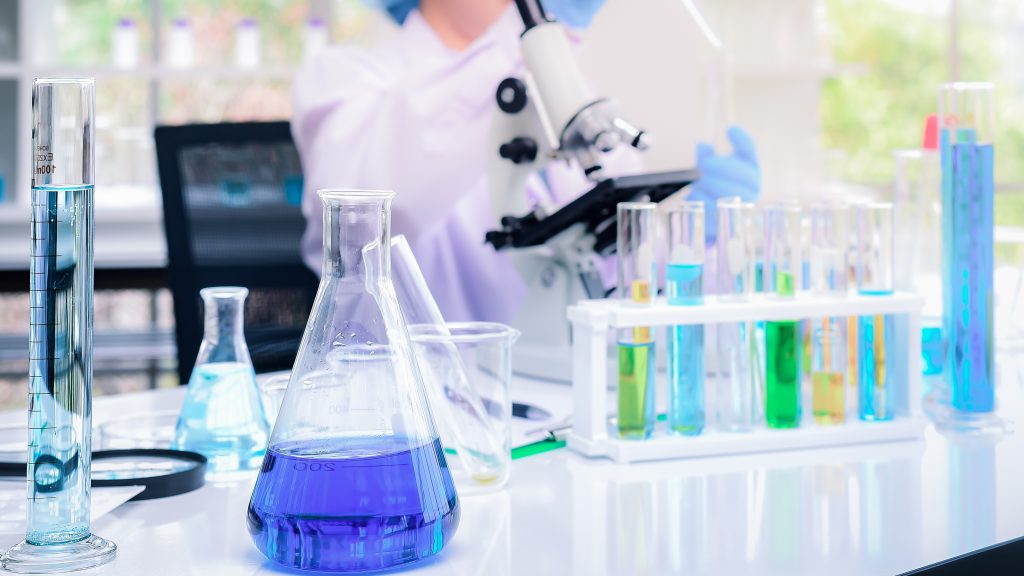
Biological Technician Schooling and Training
To land a job in this profession, one needs to attend biological technician school. This means earning a bachelor’s degree in biology or a closely related discipline. Biological technician schooling consists of majoring in biology or an associated subfield like ecology or microbiology. Since most entry-level positions require schooling and training, it’s important to showcase your laboratory skills. As a college student majoring in biology or a related discipline, you’ll take plenty of courses with lab components. These labs are incredibly important to showcase on your resume, as they demonstrate your experience with certain lab techniques.Best Degrees for Biological Technicians
To fulfill the biological technician education requirements, one needs a bachelor’s degree in the field of biology, or in a closely related discipline. In addition to a degree in a biological science, you’ll need to take courses in math, physics, and statistics, as well as other sciences. You’ll also need extensive laboratory work to showcase experience to employers. Below are some of the best degrees for biological technicians. Most are biology-related, but they allow students to branch out from a general biology major. Biology As a biology major, you’ll study the functions and characteristics of living organisms. So, how does biology prepare you for becoming a biological technician? Biology majors take classes in biology, chemistry, math, and physics. All classes require lab components, which prepare you for your potential career as a biological tech. Biochemistry Biochemistry majors study both biology and chemistry. To put it simply, they study the chemistry of living things. Biochemistry programs prepare students for a career as a biological technician by offering courses and laboratory components in subjects like biological chemistry, macromolecular structure and metabolism, metabolic chemistry, and synthetic chemistry. Biophysics Biophysics is an interdisciplinary subject that blends physics and biology with chemistry, computer science, engineering, and math. But biophysicists differ from biologists in that they understand biology more quantitatively. Courses in biophysics programs include biochemistry, biophysical chemistry, modeling biological systems, and sensory signal transduction. Ecology Ecology programs focus on principles and practices in agriculture, as well as on environmental problems. Undergraduate courses cover topics such as field ecology and methods, global conservation ecology, parasite and disease ecology, and science communication. Most classes require lab components. Microbiology Microbiology majors study the way that microscopic organisms evolve, function, or cause disease. Extensive lab work is involved in this discipline, which prepares students for careers as biological technicians. Coursework may cover topics like ecological and environmental microbiology, medical microbiology, and prokaryotic microbiology. Physiology According to U.S. News & World Report’s publication on education, physiology is the study of life, from the activities of organisms to the anatomy and physiology of humans. The major consists of a mix of biology, chemistry, mathematics, and physics. Lab work is a critical component of the major, and students gain plenty of experience working in laboratories. Courses may include cellular biology, immunology, organic chemistry, and more.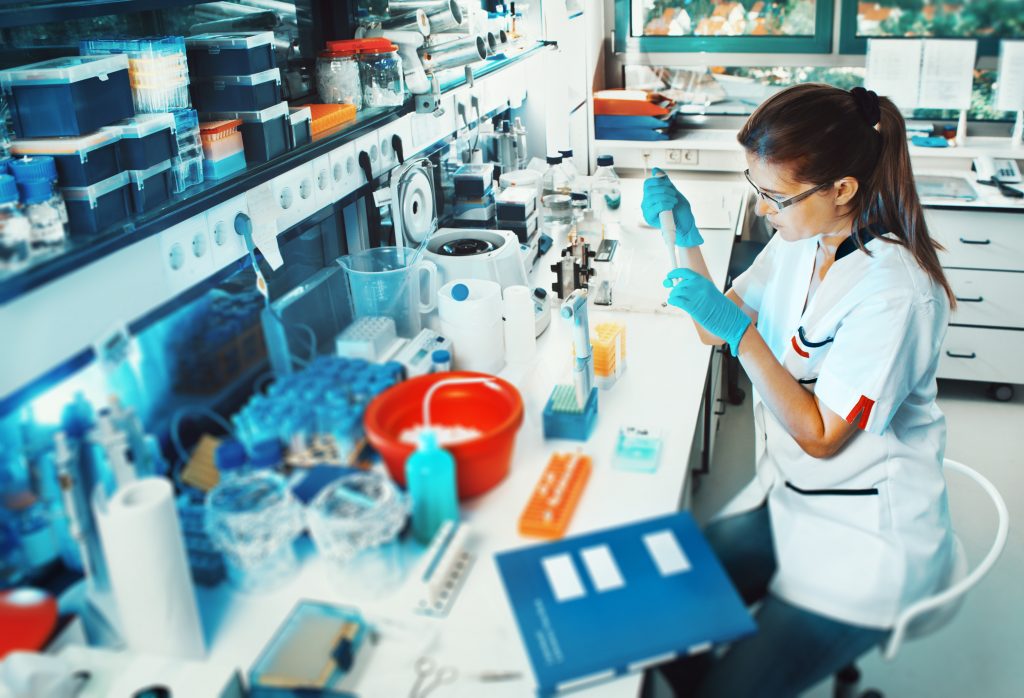
What Does It Take to Be a Biological Technician?
In addition to education and training, becoming a biological technician requires skills that aren’t always taught in the classroom. These skills may be honed through experience, but it’s best to have them even before you embark on your career as a biological tech. Important qualities and skills that biological technicians should have include:- Analytical skills: Accuracy and precision are important parts of the job of a biological technician. As a result, having strong analytical skills is important, especially when conducting scientific experiments.
- Critical-thinking skills: To be able to draw sound conclusions from experimental results, one must have strong critical-thinking skills. Biological technicians reason through results and determine outcomes. Critical-thinking skills are a must in the laboratory.
- Effective communication skills: Listening, following direction from managing scientists, and communicating findings verbally and in written reports are all important aspects of the job. As a result, biological technicians need strong and effective communication skills.
- Observational skills: Biological technicians observe and monitor their experiments to ensure accurate results. To keep an accurate record of their work, including the procedures followed and the conditions under which the experiment was conducted, biological techs must have superior observational skills.
- Technical skills: Biological technicians work with complicated equipment. They must set up the equipment and handle instruments in the laboratory. They ensure that all equipment works properly so that the outcomes of experiments are reliable. To do these tasks correctly, biological techs must have good technical skills.
How Long Does It Take to Become a Biological Technician?
Becoming a biological technician takes at least four years of education. However, some employers will consider hiring a qualified candidate with an associate’s degree, though these situations are rare. Most employers require candidates to have a bachelor’s degree. Traditional bachelor’s degrees take four years to complete, so you should expect to spend four years in college before qualifying for a job as a biological technician.How to Become a Biological Technician Without a Degree
Without a degree to become a biological technician, you won’t get very far. To enter the occupation, one needs a bachelor’s degree in biology, biochemistry, or a closely related discipline. Most employers hire candidates with bachelor’s degrees to fulfill biological technician openings, but some positions may be filled by candidates with associate’s degrees, although this is less common.How Much Money Do Biological Technicians Make?
Now that you’ve learned what it takes to become a biological technician, you should know how much money you’ll likely make as you embark on this career. According to the United States Bureau of Labor Statistics (BLS), the median annual wage for biological technicians is $46,340. However, the lowest 10 percent of earners in this occupation make less than $30,440, while the highest 10 percent earn more than $74,600. There are certain factors that impact earnings potential. In addition to experience and the time one has worked in the field, industry type and geographic location affects earnings. According to the Bureau of Labor Statistics (BLS), there are top-paying industries for biological technicians. These top-paying industries include:- Medicine and pharmaceutical manufacturing: $51,250
- Scientific research and development services: $49,990
- Local, private, and state hospitals: $48,940
- Colleges, professional schools, and universities: $44,170
- Federal government, excluding postal service: $41,500
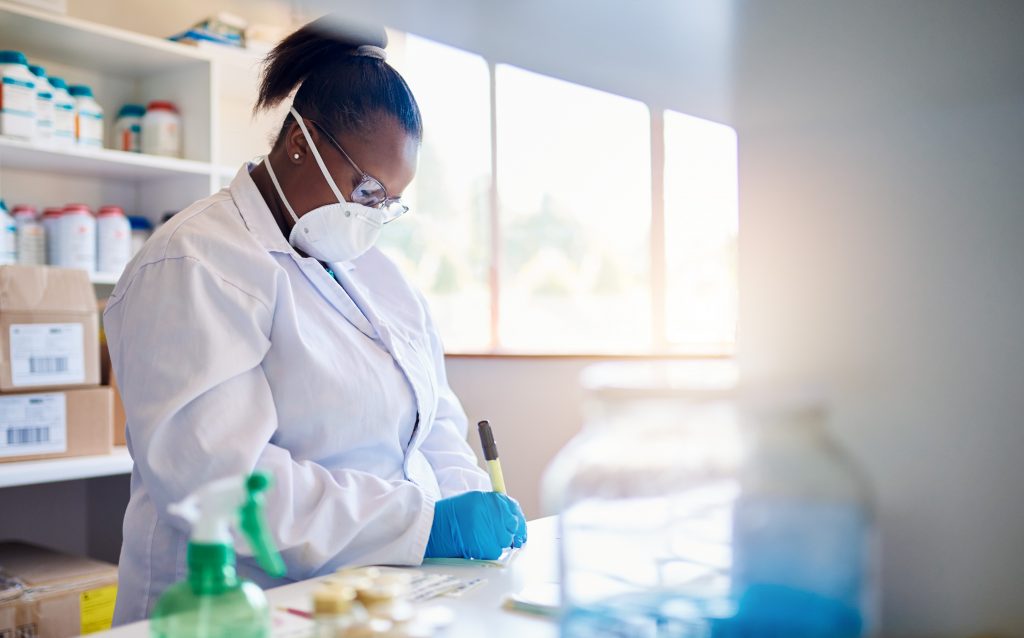 In addition to top-paying industries, it’s important to consider geographic location as a factor affecting earnings potential. According to the Occupational Employment and Wage Statistics (OEWS) data published by the BLS, there are five top-paying states for biological technicians. These top-paying states offer higher-than-average earnings for this occupation. In fact, the highest-paying state offers over $22,000 per year more than the national average. Top-paying states include:
In addition to top-paying industries, it’s important to consider geographic location as a factor affecting earnings potential. According to the Occupational Employment and Wage Statistics (OEWS) data published by the BLS, there are five top-paying states for biological technicians. These top-paying states offer higher-than-average earnings for this occupation. In fact, the highest-paying state offers over $22,000 per year more than the national average. Top-paying states include: - Connecticut: $68,360
- Massachusetts: $59,390
- New Jersey: $58,500
- Arkansas: $55,430
- Illinois: $54,670
- New Haven, Connecticut: $69,760
- San Jose-Sunnyvale-Santa Clara, California: $67,100
- Dallas-Fort Worth-Arlington, Texas: $63,930
- Hartford-West Hartford-East Hartford, Connecticut: $63,010
- Vallejo-Fairfield, California: $60,940
- San Francisco-Oakland-Hayward, California: $60,470
- Washington-Arlington-Alexandria, D.C., Virginia, Maryland, West Virginia: $60,120
- Boston-Cambridge-Nashua, Massachusetts, New Hampshire: $59,210
- San Antonio-New Braunfels, Texas: $58,500
- Santa Rosa, California: $58,410
- West Central and Southwest New Hampshire: $51,330
- Northeast Mississippi: $49,750
- Hill Country region of Texas: $48,870
- Northern New Mexico: $48,220
- Alaska non-metro area: $47,540
What Is the Job Outlook for Biological Technicians?
According to the Bureau of Labor Statistics (BLS), an employment growth of seven percent is expected over the next 10 years for this career. Growth is about as fast as the total for all occupations (eight percent) and on par with the anticipated growth for all life, physical, and social science technicians (seven percent). BLS also projects that about 11,800 openings for this occupation will result each year, on average, for the next 10 years. These job openings should result from the growing need to replace workers who retire from this profession. Other openings will result from the need to replace those who transfer to another occupation or advance to another position. As demand for biological and medical research increases over the next several years, more biological technicians will be needed. New areas of science, such as biotechnology and synthetic biology, will also give rise to the hiring of more biological techs. Overall, the outlook for biological technicians is stable and favorable. While this field is considered to be a small one, technological advances and increases in research are causing substantial employment growth. As a result, more and more biological technicians will be needed over time. Now is an ideal time to pursue becoming a biological technician. BDP StaffRelated Resources:
- 20 Most Affordable Master’s In Nursing Leadership and Nurse Administration Online
- 30 Best Online Bachelor’s in Healthcare Administration
- 30 Best Online Bachelor’s in Health Sciences and Nutrition
- Top 50 Best Affordable RN to BSN Degrees Online
- Ultimate Guide to Nursing & Healthcare Degrees and Careers
- What Is the Best Degree Path for Becoming a Biochemist?
